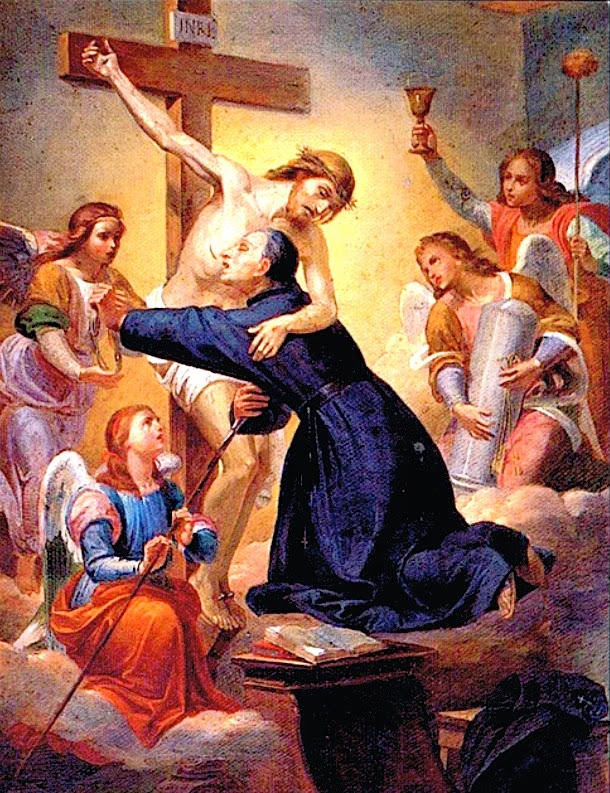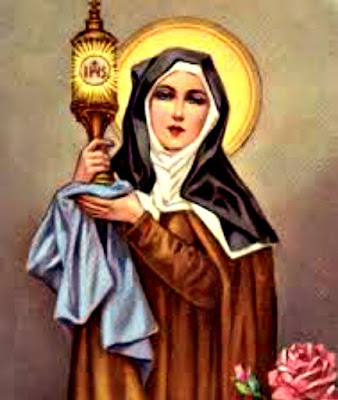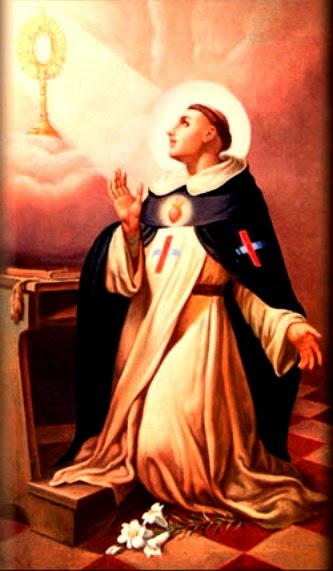Who was St. Paul of the Cross?
Today is the feast day of St. Paul of the Cross, priest, mystic, and founder of the Passionist Congregation.
Paul was born in Ovada, in northern Italy as Paolo Francesco Danei in 1694, the second oldest of sixteen children, eleven of whom died in infancy. His father was from a noble family that had been reduced to poverty over the years. His parents were devout Catholics and their strong faith provided the grace they needed to accept their trials. Paul’s mother had a deep and lively faith, which she shared with her son. She often read to him, sharing the writings of the desert fathers. Paul received his early education from a priest and was a very virtuous and pious youth, who spent much time in prayer, attended daily Mass, and visited the Blessed Sacrament, without neglecting his duties. He had a great love and devotion for Christ Crucified.
As a young man, Paul enlisted in the Army, desiring to serve Christ in the Crusades; however, he abandoned soldiering to spend his life in solitary prayer. At the age of 19, Paul had a vivid experience of the depth of God's love which changed his life. As a result of this vision, he experienced a deep interior conversion and aspired to live a life of perfection. While still a layman, he left everything behind, including the offer of a good marriage as well as an inheritance left to him by an uncle who was a priest, to found the Passionists.
In 1727, Paul and his brother, John, were ordained as priests by Pope Benedict XII and they founded the first Passionist monastery in the mountains above Genoa. While contemplation and prayer were at the very heart of Paul's life and the life of his new institute, Paul himself soon became a prominent preacher, spiritual guide, as well as a writer and mystic. For Paul, the Passion of Christ was the most vivid witness to God's love for us and he continually called upon his followers to meditate on the sufferings of Jesus Christ.
It took from 1720 to 1741—twenty-one years of humble service as a hospital chaplain and traveling preacher combined with quiet perseverance in the face of official Church rejection—for Paul to receive his first papal authority to found his religious order, “The Congregation of the Passion.”
For over 40 years, Paul and his “like-minded companions,” the Passionists, preached the loving memory of the passion and death of Jesus Christ. Paul would challenge his hearers to die a mystical death with Christ so as to rise up with Christ to a life of faith and love. The sick and the poor remained special recipients of Paul’s care, but he would also preach to the clergy and remind them of their obligations to serve the neglected.
During his lifetime Paul founded thirteen monasteries of Priests and Brothers throughout Italy as well as a monastery of Passionist Nuns. Today the Passionists live and serve in 59 countries of the world and are enhanced by other religious and lay groups who find inspiration in the Charism of St. Paul of the Cross.
Paul died in Rome on October 18, 1775. He was canonized on June 29, 1867 by Pope Pius IX.
Quotes from St. Paul of the Cross
“[Christ crucified] is the pattern of all that is gentle and attractive…. Bury yourselves, therefore, in the heart of Jesus crucified, desiring nothing else but to lead all men to follow his will in all things.”
"The Mass is the most favorable occasion to speak with the eternal Father, because then we offer Him His only Son as a victim for our salvation. Before celebrating, reflect on the sufferings of your Redeemer, commune peaceably with Him, even in the midst of dryness; carry to the altar the needs of the entire world."
"When you feel the assaults of passion and anger, then is the time to be silent as Jesus was silent in the midst of His ignominies and sufferings."
"Entrust yourself entirely to God. He is a Father, and a most loving Father at that, who would rather let heaven and earth collapse than abandon anyone who trusted in him."
"It is very good and holy to consider the passion of our Lord, and to meditate on it, for by this sacred path we reach union with God. In this most holy school we learn true wisdom, for it was there that all the saints learned it. "





Comments
Post a Comment
Comments are moderated and are published at the blogger's discretion.